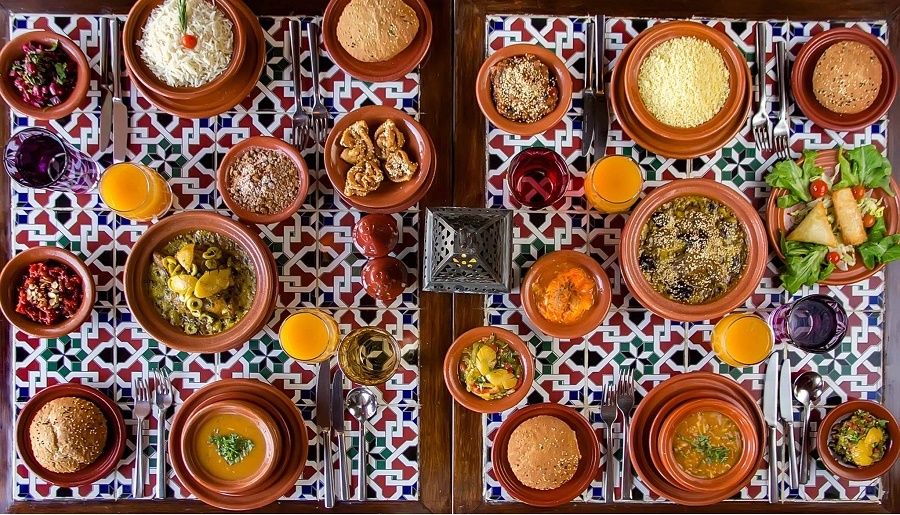Ramadan a flash point for Egypt food startups

Egyptians’ food spending over Ramadan hit an average of 35 billion Egyptian pounds (US$3.5 billion), or about 15 percent of their total annual food budget, according to a report from the state statistics agency CAPMAS.
Food startups have done well out of this extra spending. At least, those not dedicated to health foods, given how the Egyptian Ramadan feast often involved foods rich in fat and sugar.
Yasser Al Zahar, founder of healthy office lunches startup Gedety, told Wamda their sales slowed during Ramadan.
“The company is committed to boosting the notion of healthy food, which does not entirely fall under the list of preferred foods during the fasting month,” he said. “Companies that normally demand 50 meals per day along the span of a year, decrease their needs to three to five meals per day during the month of Ramadan.”

'shop front'. (Image via Gedety)
Al Zahar’s startup manages in-house catering for larger businesses, as well as running a permanent stall in the downtown tech hub the Greek Campus.
Homemade food delivery website Yumamia had the opposite experience: sales are booming. launched in 2014.
Demand rose during the first 10 days of Ramadan, and by 150 percent during the last week before the holy month started, said founder and CEO Belal El-Borno.
In order to increase sales during Ramadan, El-Borno and his partner Mohammad Moghraby added several holiday-specific features to the service before the fastng month began, such as a four-hour delivery period for certain easy-to-prepare foods rather than the usual 24-hour turn-around.
They also reduced the minimum order from 150 Egyptian pounds (US$17) to 100 Egyptian pounds (US$11), and introduced a list of pre-prepared frozen options “delivered to the customer ready to be directly cooked”, said El-Borno.
The startup has outsourced deliveries to three companies, which El-Borno declined to name, but he plans to add a delivery fleet to the business after securing seed investment of $400,000 in May 2015 from a group of Saudi backers.

Yumamia competitor Akla Baity saw sales triple in the early days of Ramadan, said founder Sherine Salah.
Akla Baity, launched in January 2016, also collects food from home cooks with a delivery period of 24 hours.
The website allowed for multiple payment methods, but Salah said most customers still preferred to pay upon delivery.
Salah and her partner Miral Magdi want to enter one of Egypt’s startup accelerators, as they’ve found it difficult to attract investors while in such as early stage of the business.
Bigger shopping carts, please
But Egyptians aren’t just ordering in, they’re also cooking for themselves during Ramadan.
Easy Pan, a company that provides recipes and the pre-prepped ingredients that go with them, found that business was booming.

“The customer usually asks for a 100 Egyptian pounds (US$11) worth of ingredients on average,” said COO Doha Tantawi. “Since the beginning of the holy month, we have noticed that the ‘carts’ of the same customers have increased by five times, taking into consideration that the traditional Ramadan feast in Egypt requires a much bigger variety of dishes.”
Tantawi said that since they launched in December, Easy Pan had registered 1000 customers.
Fish: not a Ramadan favorite
Where kunafa and kibbe might be hot favourites, fish categorically is not.

(Image via Agrimatic Farms)
Agrimatic Farms grows fish as well as vegetables via aquaponics, producing cheaper organic produce for Cairo grocers.
“[During Ramadan] the demand for fish decreases to a minimum, with an opposing high demand for vegetables and fruits reaching an equivalence of 100 percent of normal year-round demand,” director of operations Marwan Nabil told Wamda.
"The fasting month forces us to hold the fish sales completely for the whole 30-day period."
Where once the behemoth Otlob ruled Egypt’s food tech sector, over the last year or so small companies have popped up as indirect competitors.
As these tech startups share more and more of their analytics over major holidays such as Ramadan, we will have a deeper insight into the habits of everyday Egyptians’ lives.


